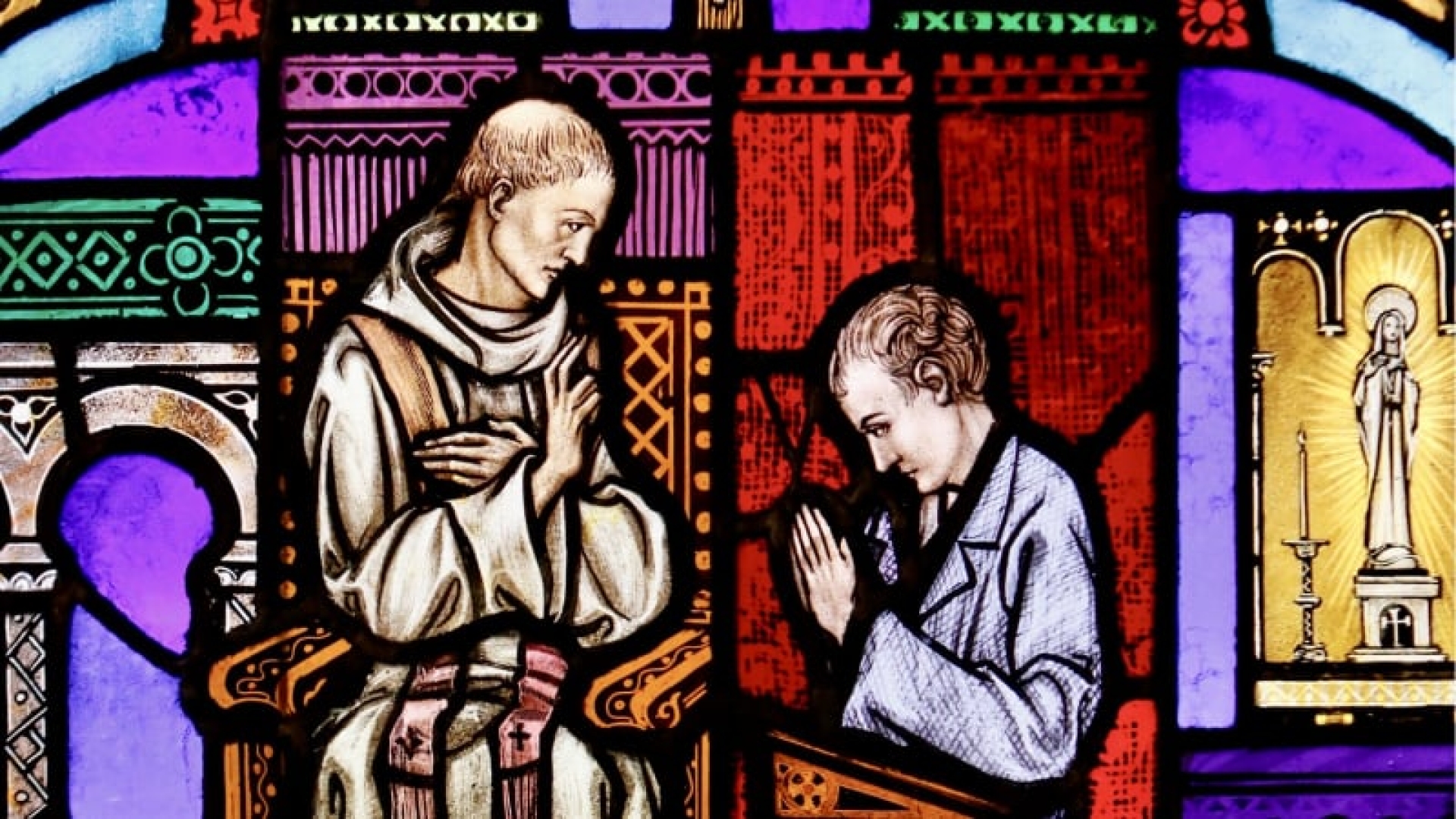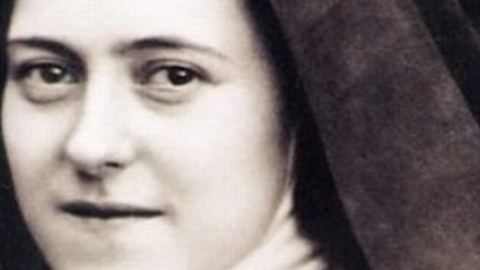First Confession Recollection

Stained-glass window at St. Aloysius Church in Great Neck, New York
We offer a special time to introduce children to their first confession. This recollection is made for the children preparing their First communion. Parents are welcome to join the recollection and assist to the classes.
Schedule
10:00 am Introduction
Welcome - Visit to the Blessed Sacrament
10:20 am Instruction I
Contrition - Accusation - Visit of the Confessional
11:00 am Confession | Mass
12:00 pm Instruction II
Sacramental penance - Penance - Thanksgiving
12:30 pm Rosary
Frequent Asked Questions
Why do children go to Confession?
Children with the use of reason are capable of virtue but also of sin. For them as well as for adults, confession is the sacrament that brings God's pardon for the sins committed since Baptism.
Following the Decree of the Lateran Council, the faithful are obliged, as soon as they arrive at the years of discretion, to receive the Sacraments of Penance and Holy Eucharist at least once a year.
Before receiving the First Communion children must be prepared to receive the sacrament of Confession. It is very fitting to allow them to receive the sacrament of Confession several times before Communion. Confession becomes then a way to prepare better for the First Communion.
When can children go to Confession?
Children receive the sacrament of confession before their First Communion. As soon as the children can sin, the sacrament should be available to them. Practically, it is with the preparation of the First Communion that the sacrament of Confession is introduced to them.
The age of discretion, both for Confession and for Holy Communion, is the time when a child begins to reason, that is about the seventh year, more or less. From that time on begins the obligation of fulfilling the precept of both Confession and Communion.
Singulari Quidem, St. Pius X, 1910.
What can I do to help my child's Confession?
Like any other penitent, the child must produce the acts required for the sacrament: contrition, examination of conscience, accusation, and satisfaction. Parents ease the confession of their children by giving the example of going to confession frequently as well as assisting their children in producing different acts.
Act of contrition: it should be said every day during morning and evening prayers. At least it should be memorized before the First Confession for the child to be able to say it during his confession.
Examination of Conscience: it is a good practice to do as part of the family evening prayer. A special time should be dedicated to it before confession. Most of the missals provide a list of sins which can be helpful.
Accusation: the child needs to be able to say his sins clearly and humbly. A little practice can be done before confession and it could be written if the child knows how to read easily.
Satisfaction: the priest gives penance (generally a short prayer) after the absolution. Children should be taught to do penance immediately after the sacrament.
What St. Pius X wanted for the First Communion
In 1910, Pope St. Pius X, with his decree Quam Singulari, declared that children who have reached the “age of reason” (around seven years old) should be permitted to receive the Holy Eucharist. He hoped "that children even from their tender years may be united to Jesus Christ, may live His life, and obtain protection from all danger of corruption.”
1. The age of discretion, both for Confession and for Holy Communion, is the time when a child begins to reason, that is about the seventh year, more or less. From that time on begins the obligation of fulfilling the precept of both Confession and Communion.
2. A full and perfect knowledge of Christian doctrine is not necessary either for First Confession or for First Communion. Afterwards, however, the child will be obliged to learn gradually the entire Catechism according to his ability.
3. The knowledge of religion that is required in a child to be properly prepared to receive First Communion is such that he will understand according to his capacity those Mysteries of faith that are necessary as a means of salvation and that he can distinguish between the Bread of the Eucharist and ordinary, material bread, and thus he may receive Holy Communion with a devotion becoming his years.
4. The obligation of the precept of Confession and Communion which binds the child particularly affects those who have him in charge, namely, parents, confessors, teachers, and the Pastor. It belongs to the father, or the person taking his place, and to the confessor, according to the Roman Catechism, to admit a child to his First Communion.
5. The pastor should announce and hold a General Communion of the children once a year or more often, and he should on these occasions admit not only the First Communicants but also others who have already approached the Holy Table. Some days of instruction and preparation should be previously given to children.
6. Those who have charge of the children should zealously see to it that after their First Communion, these children frequently approach the Holy Table, even daily if possible, as Jesus Christ and Mother Church desire, and let this be done with a devotion becoming their age. They must also bear in mind that a very grave duty obliged them to have the children attend the public Catechism classes; if this is not done, then they must supply religious instruction in some other way.
7. The custom of not admitting children to Confession or of not giving them absolution when they have already attained the use of reason must be entirely abandoned.
8. The practice of not administering the Viaticum and Extreme Unction to children who have attained the use of reason, and of burying them with the rite used for infants is a most intolerable abuse.





